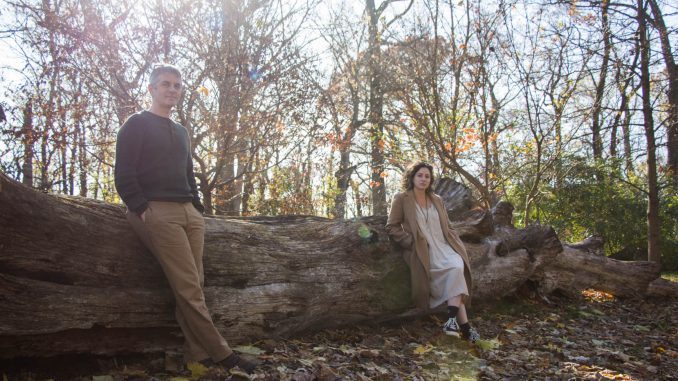
In 2019, PBS asked Ben Kalina and Jen Schneider to create a documentary about something they have been interested in for years: climate change.
“We’re not doomed,” said Schneider, a 2009 film and media arts alumna. “There’s still so many decisions we can make to make a difference.”
Schneider and Kalina, a 2011 film and media arts alumnus, collaborated on the documentary “Can We Cool the Planet?” which examines technology that reduces the impacts of climate change, like geoengineering in the atmosphere to block sunlight and using carbon to create solid materials. The film premiered on PBS’s science program NOVA on Oct. 28 and discussed climate change issues through interviews with researchers and professors from across the globe.
Part of “Can We Cool the Planet?” takes place in Iceland, where Kalina and Schneider interview Sandra Ósk Snæbjörnsdóttir, a geologist who is redirecting carbon dioxide into the volcanic rock the island is built on so gas is not released into the atmosphere where it could contribute to atmospheric warming.
In Zürich, Switzerland, they talk to scientists researching locations where it might be possible to plant a trillion trees to absorb some carbon in the atmosphere.
While these new technologies are fascinating and exciting, Schneider said the interviews showed her that reducing carbon emissions to zero is the first priority for climate activists.
“If we don’t do that, none of these technologies matter,” she said. “There is no silver bullet solution to climate change.”
Climate change is a long-term change in weather patterns that define Earth’s climate, according to NASA. New technology addresses climate change by reducing fossil fuel emissions and making climate effects more manageable and less disastrous, Kalina said.
Kalina and Schneider said they were already researching technical solutions to reduce fossil fuel emissions and had connections with people working on climate change technology, so when NOVA approached them, they just needed to make phone calls and organize interviews.
The pair met in Temple’s film and media arts graduate program where they worked on Kalina’s senior thesis, a documentary called ‘Shored Up’ that Kalina directed and Schneider worked on as cinematographer.
Kalina’s career focus has been mainly on environmental projects, including producing films for The Nature Conservancy, a global nonprofit environmental organization, and is currently finishing a short film about the effects of acid mine drainage in Western Pennsylvania, he said.
“[Climate change] is probably the biggest issue that we need to think about and struggle with,” Kalina said.
Schneider typically takes cinematography roles for film projects, she said.
In 2017, she was awarded Emerging Cinematographer by the International Camera Guild for her work on a short film “Unbound” about a woman who works at a silk factory to save her family, which premiered at the Cannes Film Festival.
More than a decade after they were students at Temple, Scene Analysis for Writers and Directors, a class with Jeff Rush, is still influential in transitioning his storytelling into films, Kalina said.
Rush, a film and media arts professor, enjoys seeing former students use their skills as a foundation to speak on important issues like climate change, he said.
“[Kalina] and [Schneider] are looking at the world that they are inheriting or have inherited, that has unfortunately many issues that need to be addressed,” Rush said. “Fortunately they are finding ways in their own mode to address them, so that really is terrific.”
The urgency of climate change’s impacts on the environment and human life means action has to be taken as soon as possible, Kalina said.
“Be out there, be visible, be vocal, write your representatives, do all the things to try to force this to happen,” he said.


Be the first to comment